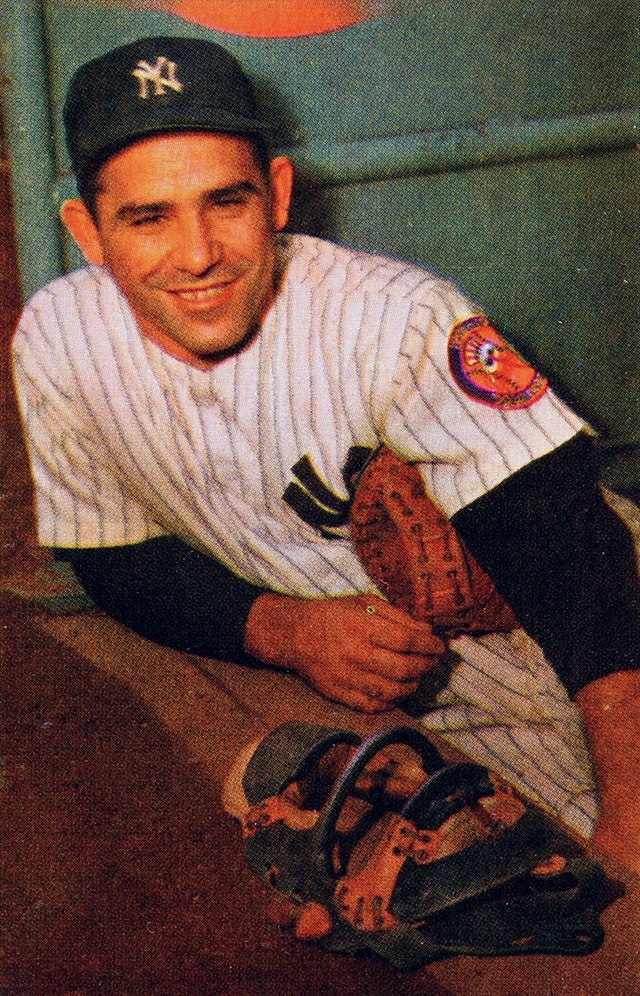Yogi Berra was accurate

I walk my dog Winston all over the neighborhood. I admit I let him choose the route most days. It is HIS business that we are going to attend to, so why do I feel like I need to decide for him? Mostly, I walk along looking generally straight ahead. People out in the front yards dont need my comments. If we make eye contact, I will say hello. Or if I come within, say, 10 feet of someone else, I will day hello. Today was not like most days.
Yogi Berra was accurate when he is alleged to have said, “You can observe a lot by just watching.” As Winston and I were walking past a neighbor’s house, I heard a woman’s voice say something like, “Have you fallen again?” So, I turned my attention about 90 degrees to my right to see an older gentleman sitting on the ground, after unsuccessfully trying to navigate himself into a walker with a fold-down seat.
I yelled, “Do you need help?” to which the wife said, “I might.” Winston was excited at the prospect of meeting a new person. In light of Winston’s presence, I waited twenty or so feet away from them both. I wanted them to call on me to help, rather than to jump in and start helping.
The gentleman seemed a little put off that a person would need to help him, to which I can relate. His wife told me that he falls somewhat often, and he may have hurt his back this time. “Does your back hurt?” she asked. He didn’t say anything, instead rolling himself onto all fours and started crawling toward a slope of grass nearby. She said some things, perhaps as much to fill the silence, or to explain the situation we were all in, or maybe just to be polite to someone they hardly know. “Do you live in this neighborhood?” “Yes, I live just over there in [home address].” “Oh, that’s nice. We are the Turnstiles” (pseudonyms to protect identities).
Once Mr. Turnstile reached the grass, he was able to elevate his chest and head, and next got into a pose where he had one knee down, one foot down, and needed some support to push off with the foot to get back to a standing position. He was able to get himself back to standing with a cane. Even while standing with his cane, he was kinda wobbly. Mrs. Turnstile steadied him and they turned to leave. She dismissed me by saying, “Thank you for offering to help” as they turned to make their way into their house.
Then Winston and I turned to complete our job. I mentally unpacked what I had seen:
- An older man (who I knew a tiny bit about from a previous hasty introduction a couple of years ago; he had a very authoritative and respectable job in the community) had fallen and now a stranger and his dog are offering to help him, leaving him a bit embarrassed, perhaps.
- A woman who is not strong enough to help him bodily is perhaps also a bit embarrassed at the situation and offers some comments to explain.
- The man takes the first opportunity to turn his back to me, and never says a word, except for telling his wife what he wants to do, and to ask her to move slightly so he can accomplish his goal.
- I was thanked for my willingness to help, as a way of saying good bye.
Yet, it seemed that every action was proper in its own way.
A person, previously very capable, is put in a position where they need to achieve an outcome in front of a well-meaning stranger. The outcome, according to another person involved, seems rather less than certain. And, while trying to accomplish the goal, the person gets to hear their loved one explain to the stranger that this is a relatively common event. I could relate to the potential embarrassment.
It is nearly 100% certain that neither Mr. nor Mrs. Turnstile will see this. And I know that I have inserted my own personality onto the motivations behind my protagonists.
Winston got to meet Mrs. Turnstile. He wanted me to make sure you knew that.